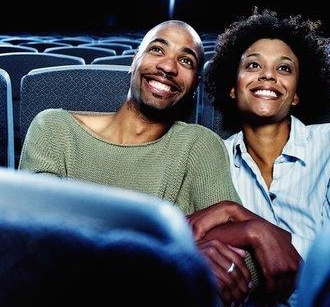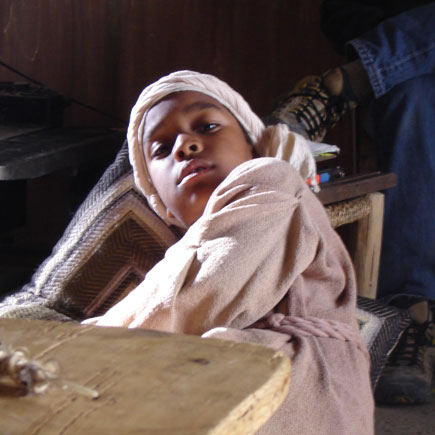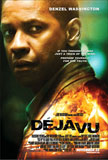by Kam Williams
1. Diary of a Lost Girl by Kola Boof
This alternately heartbreaking and brutally-honest autobiography is not only
my top pick of 2006, but just might be the most brilliant deconstruction of
the plight of present-day African-Americans yet written. Born in The Sudan
in March of 1972, she was orphaned at the age of seven after her parents
were murdered for speaking out against the government’s involvement in the
revival of the slave trade. After being abandoned by her grandmother for
being too dark-skinned, Kola eventually found her way to the United States
where she was adopted by a kindly African-American couple with a big family.
Diary of a Lost Girl is a welcome addition to the genre of African-American
memoir for it represents the unalloyed emotions of an intelligent, defiant,
controversial, frequently profane and proud black woman, a survivor who
somehow overcame one of the worst childhoods imaginable to share an
abundance of intriguing, if debatable insights about her adopted homeland.
2. Deconstructing Tyrone
A New Look at Black Masculinity in the Hip-Hop Generation
by Natalie Hopkinson & Natalie Y. Moore
A superb, thorough, and intellectually-honest examination of the latter-day
African-American male. Leaving no stone unturned, the co-authors assess how
such phenomena as homophobia, the incarceration rate, brothers on the
down-low, abandonment by baby-daddies, gangsta’ rap’s influuence, academic
underachievement and underemployment have contributed to what they see as an
unfortunate schism between brothers and sisters.
The fundamental question the book raises repeatedly, but in a myriad of
ways, is “How can you love your culture, hip-hop, but love yourself, too?”
Can a self-respecting black woman embrace the typical black male in spite of
the gender frictions without capitulating and accepting the “video ho”
label? An excellent, urgent study designed to initiate a healthy,
long-overdue debate about the prospects and direction of the Hip-Hop
Generation by exposing its prevailing male imagery as unacceptably
misogynistic, and as more emasculated than macho.
3 Not in My Family
AIDS in the African-American Family
Edited by Gil L. Robertson, IV
This urgent, informative and groundbreaking book takes AIDS out of the
inner-city closet by initiating an intelligent dialogue designed to shake
both brothers and sisters out of their complacency and thereby inspire
everyone to action. Among the sixty or so contributors to this timely text
are entertainers, such as Patti LaBelle, Jasmine Guy, Sheryl Lee Ralph,
Mo’Nique and Hill Harper; physicians, including Dr. Donna Christensen, DR.
James Benton and Dr. Joycelyn Elders; AIDS activists Phill Wilson and
Christopher Cathcart; ministers, like Reverend Al Sharpton and Calvin Butts;
best-selling authors, such as Randall Robinson and Omar Tyree; and
Congressmen Barbara Lee, Jesse Jackson, Jr. and Gregory Meeks.
But just as moving as the clarion call sounded by any of these celebs, are
the heartfelt stories related by ordinary folks without any pedigree. Filled
to overflowing with almost sacred moments, Not in My Family is a must read,
but not merely as a heart-wrenching collection of moving AIDS memoirs. For
perhaps more significantly, this seminal work simultaneously serves as the
means of kickstarting candid dialogue about an array of pressing, collateral
topics, ranging from homophobia to incarceration to brothers on the down low
to low self-esteem to the use of condoms to the role of the Church in
combating this virtually-invisible genocide quietly claiming
African-Americana.
4. White Men Can't Hump (As Good As Black Men)
Race & Sex in America, Volumes I & II
by Todd Wooten
Not only can’t white men jump, but they apparently can’t hump either, at
least according to Todd Wooten, a Marine-turned-self-appointed expert on
mating habits across the color line. To his credit, the sagacious, salacious
sex historian makes up for his lack of credentials with an infectious
enthusiasm for his material and a colorful ability to turn a phrase, even if
he is prone to profanity.
Taking no prisoners, the author is an equal-opportunity offender, and an
admirable in his effort to close the human divide by addressing a litany of
uncomfortable issues with the goal of eradicating both intolerance and
underachievement. Overall, the book happens to be quite an entertaining
page-turner which rests on the basic premise that the legacy of slavery has
left black males both devalued and blamed for their collective lower station
in life.
5. The Covenant with Black America
Edited by Tavis Smiley
Every February, talk show host Tavis Smiley has convened some of the most
brilliant black minds around to assess the State of the Black Union. Feeling
that an annual symposium simply exchanging opinions wasn’t enough, he
decided to come up with a blueprint addressing the most critical issues
confronting the African-American community.
The Covenant with Black America amounts to an exhaustive, encyclopedic
assault on the litany of woes presently plaguing African-Americans. What
makes this treatise unique is the plethora of practical guidance it provides
in terms of the undoing the persisting inequalities. In advocating
evolutionary as opposed to revolutionary solutions, this inclusive,
optimistic opus ought to inspire anyone who reads it to get involved
personally, and to lend their talents to the eradication of the seemingly
intractable impediments to black progress.
6. Mixed
My Life in Black and White
By Angela Nissel
Halle Berry’s blurb on the front cover of this poignant memoir misleadingly
describes it as, “Hilarious!” A must read, yes. Halle was ostensibly quoted
not as a literary critic because she has a black parent and a white parent,
just like the book’s author. Nevertheless, while Angela Nissel’s
autobiography has more than its share of humorous moments, its prevailing
tone is stone cold sober.
Brutally honest in tone, her heartbreaking tale begins when she was
abandoned at an early age by her Jewish father to be raised alone in West
Philadelphia by her African-American mother, Gwen. Unfortunately, for
Angela, this meant that she had to grow up fast during her formative years,
negotiating her way in a community where many challenged her blackness
because she was not only light-skinned, but half-white.
Mixed graphically relates her battle with depression and suicidal
tendencies, her stint as a stripper, her being threatened with a gun by a
neighbor, and her post-collegiate decision to date white guys after being
unable to interest black professionals. Given how low she had to go before
bottoming-out, it’s a minor miracle this survivor is still with us, let
alone flourishing, having finally found both the man and job of her dreams.
7. Getting It Wrong
How Black Public Intellectuals Are Failing Black America
by Algernon Austin
The author’s primary contention, here, is that ivory tower blacks, who have
lost touch with the community, now feel comfortable indicting less fortunate
black folks they left behind for exhibiting symptoms simply long-associated
with poverty. Such blaming of the victims is destructive, Austin suggests,
because it relies on a stereotyping which makes it convenient for Middle
America to see skin color rather than a racist, exploitative economy as the
explanation for the plight of the least of their brethren.
He goes on to indict the legal system as “the most anti-black institution”
in the country arguing that it defines “criminality as an inherent
characteristic, as a trait, of blackness.” Consistently separating myth from
fact in this fashion, Getting It Wrong is an excellent opus in that it
deliberately deconstructs the unfair and color-coded stereotypes which the
both the black bourgeoisie and the white mainstream culture have come to
resort to when referring to African-American ghetto-dwellers.
8. Letters to a Young Brother
Manifest Your Destiny
by Hill Harper
Lately, it seems that everyday another study is announced sharing some
sobering statistics about the dire straits of the African-American male.
Whether it has to do with employment, parenting, education, incarceration,
or any other factors correlated with success in this society, all
indications are that the black male is currently in crisis.
For this reason, Hill Harper, star of CBS-TV’s CSI: NY, was inspired to
publish Letters to a Young Brother, a priceless, no-nonsense, step-by-step
guide out of the ghetto, provided it reaches a pair of receptive ears with a
support team prepared to help him achieve his dream. The salient message
being delivered by this how-to primer is that education is power, that
material possessions do not ensure happiness, and that it’s important to be
the architect of your own life.
9. Black Cops Against Brutality:
A Crisis Action Plan
by DeLacy Davis
The book is an invaluable, police encounter survival guide, for it offers
plenty of sound advice on how to handle the situation, if you are unlucky
enough to get detained by a cop for whatever reason. Obviously, as a
recently-retired, veteran police officer, the author has some sage insights
to share, such as to remain calm, roll down your car window, turn on the
ceiling light and keep both hands on the wheel during a motor vehicle stop.
He also lets you know how to handle the situation when the authorities
arrive at your door, whether with or without a warrant, or if they simply
begin questioning you right on the street.
Of equal import is how Delacy addresses what to do when you’ve become the
victim of a profile stop, an unlawful arrest or an unfair search and
seizure. Here, he delineates each step of the subsequent civilian complaint
process, from keeping a log sheet, to finding an attorney, filing charges,
and contacting the press and your political representatives.
Finally, because the author sees the issue as a nationwide crisis, he
stresses the need to develop strategies for eradicating police brutality
once and for all. Overall, this arrives readily recommended as a
legally-sound, morally-upright and most practical guide by a brother who
breaks the blue wall of silence to help hip the people about how to deal
with the criminal justice system most effectively.
10. Lynched by Corporate America
The Gripping True Story of How One African-American Survived
Doing Business with a Fortune 500 Giant
by Herman Malone and Robert Schwab
In 1969, shortly after being honorably discharged by the Air Force, Herman
Malone returned to his hometown of Camden, Arkansas. One evening soon
thereafter, the 21 year-old vet was profile-stopped by two white cops who
took him for a ride during which they warned that he might find himself
floating dead in the swamp if he didn’t leave town immediately.
That’s how he ended up in Denver where he started a company called RMES
Communications, Inc. By 1990, RMES was flourishing, generating about $10
million in annual sales as an approved vendor for US West, one of the seven
Baby Bells. At this juncture, it looked like happily-ever-after for Herman
and his family. But unfortunately, their version of the American Dream soon
turned into a neverending nightmare when a new CEO took control of US West a
couple of years later.
For, according to Malone, the new chairman systematically began backing out
of its established agreements with black-owned businesses. So, the
suddenly-disenfranchised African-Americans filed a class action suit
alleging racial discrimination against the Fortune 500 mega-corp. And it is
that frustrating, drawn-out legal battle which is oh so painstakingly
recounted in Lynched by Corporate America.
As an attorney, I found this cautionary tale about the justice system rather
riveting. Filled with copious quotes ostensibly recounted from court
transcripts, Mr. Malone makes a very convincing argument that a combination
of racism and a judicial kowtowing to corporate interests played a
significant role in the resolution of the case. While discouraging, this
should come as no surprise to anyone familiar with the age-old legal maxim
well-known to lawyers, “In the halls of justice, the only justice is in the
halls.”
Honorable MentionMama Made the Difference
Life Lessons My Mother Taught Me
By Bishop T.D. Jakes
Forty Million Dollar Slaves
The Rise, Fall, and Redemption of the Black Athlete
By William C. Rhoden
Jokes My Father Never Taught Me:
Life, Love, and Loss with Richard Pryor
By Rain Pryor
Life Out of Context
by Walter Mosley
Living Black History
How Reimagining the African-American Past Can Remake America’s Racial Future
by Manning Marable
A Hand to Guide Me
Legends and Leaders Celebrate the People Who Shaped Their Lives
by Denzel Washington with Daniel Paisner
Don't Shoot! I'm Coming Out
How to Man-Up & Set Heterosexuals Straight
by Ben Setfrey
Stripped Bare
The 12 Truths That Will Help You Land the Very Best Black Man
by LaDawn Black
Color Him Father:
Stories of Love and Rediscovery of Black Men
Edited by Stephana I. Colbert and Valerie I. Harrison
Historical Dictionary of African-American Television
By Kathleen Fearn-Banks
Don't Make a Black Woman Take Off Her Earrings
Madea’s Uninhibited Commentaries on Love and Life
by Tyler Perry
Words to Our Now
Imagination and Dissent
by Thomas Glave
5 Worst Black Books of 20061. The Audacity of Hope
Thoughts on Reclaiming the American Dream
by Barack Obama
This tame tome was ostensibly carefully crafted with the intent of enabling
Senator Obama to be all things to all people. Unfortunately, it ends up
reading like little more than the transparent game plan of a guileful
politician. When discussing racism, he comes off as no liberal, but more in
the “content of your character” camp as advocated by African-American
neo-cons like Shelby Steele and John McWhorter. In this regard, he has no
problem putting the onus on blacks to accommodate themselves to the
mainstream culture, because “members of every minority group continue to be
measured largely by the degree of our assimilation.”
Obama goes on to conclude that “the single biggest thing” we could do to
reduce inner-city poverty “is to encourage teenage girls to finish high
school and avoid having children out of wedlock.” If these sort of
simplistic “blaming the victim” pronouncements are truly Barack’s best ideas
on how to reclaim the American Dream, I suggest he keep dreaming.
2. White Guilt:
How Blacks & Whites Together
Destroyed the Promise of the Civil Rights Era
by Shelby Steele
This very spirited, anti-African-American screed repeatedly blames the
victims for their lot in life at every turn, and in a sadistic fashion,
almost as if he savors the smug cruelty suggested by his insensitivity. He
tempers his caustic commentary with constant reminders that he, too, is
black, invariably juxtaposing each criticism with an autobiographical aside
in which he makes flip comments concluding that if he could avoid this or
that pitfall and pull himself up by his bootstraps, anybody else can.
Euphoric in his having achieved the American Dream which has proven to be
so elusive for most blacks, Steele repeatedly proclaims himself to be cured
of the schizophrenia he says has a destructive hold on most other
African-American intellectuals. “Tired of living a lie” in order to be
black, he has found bliss in a Negro Nirvana free of the “corrupting
falseness” of the pressure to identify with folks who look like him and with
prevailing black points-of-view.
Since Shelby Steele has apparently found not only a psychic, but a
physically comfy, suburban refuge from the rigors of what he terms “race
fatigue,” perhaps this arrogant Republican apologist ought to consider
refraining from delivering condescending lectures to those unfortunates
still stuck in the slums.
3. Enough
The Phony Leaders, Dead-End Movements, and Culture of Failure
That Are Undermining Black America and What We Can Do About It
by Juan Williams
Juan Williams is best known for his appearances as a panelist on the Fox
News Channel. So, it comes as no surprise, that the political pundit might
publish a right-wing diatribe which basically blames African-Americans
themselves and their Democratic leaders for the assortment of ills which
still beset the community. Williams has rather harsh words for everyone from
Reverend Jesse Jackson to Julian Bond to Randall Robinson to Reverend Al
Sharpton.
When not indulging in character assassination, the author devotes his
attention to topical issues such as the handling of Hurricane to Katrina.
Enough’s most mind-boggling passages are those covering the tragedy,
especially since the book is dedicated to “the people rising above Katrina’s
storm.” Yet, rather than question how the city, state and federal
authorities could have all abandoned thousands upon thousands of poor black
folk for days on end, Williams conveniently concludes that, “The government
response was the result of ineptitude, not racism.”
Meanwhile, he has issues with black “paranoia” about New Orleans and sees
the black church, strong families, and a tradition of “self-help” as a
viable solution to rebuilding the devastated Lower Ninth Ward. Reads more
like a series of Republican talking points than an honest assessment of the
state of African-Americana. Enough is enough!
4. Hokum
An Anthology of African-American Humor
Edited by Paul Beatty
When I cracked open this collection of black jokes with a watermelon on the
cover, I frankly expected to find material far funnier than a pathetic mix
of goofball commentaries which devotes entire chapters to losers like Mike
Tyson, a functional illiterate who probably wasn’t even trying to make
people laugh when he went on the diatribes recounted here.
To the press, Iron Mike once said this about Lennox Lewis: “I want to eat
his children. Praise be to Allah!” The ex-champ is later showcased at his
best when simply rambling like a cross between a punch-drunk boxer and a
mental patient with diarrhea of the mouth: “At times, I come across as crude
or crass. That irritates you when I come across like a Neanderthal or a
babbling idiot, but I like to be that person. I like to show you all that
person, because that’s who you come to see.”
Where are the examples of the acerbic wit of Richard Pryor, Paul Mooney,
Godfrey Cambridge, Dick Gregory and other brilliant African-American
comedians known for their biting social satire? Not here. Maybe I missed
something, but Hokum strikes this critic as a ho-hum hoax perpetrated on the
public, since it’s ostensibly designed more for those interested in laughing
at black folks than in laughing with them.
Buy this book and the only joke’s on you.
5. Secret Daughter:
A Mixed-Race Daughter and the Mother Who Gave Her Away
by June Cross
Ten years ago, PBS aired a documentary entitled Secret Daughter, a gut-
wrenching bio-pic about the life of little orphan June, abandoned by both of
her parents at an early age to be raised by strangers in Atlantic City. What
made Ms. Cross’ story so compelling was not the fact that her father was
black and her mother was white, but that her mother was such an ice princess
when her long-lost daughter tracked her down with a camera crew to ask her
why she had dumped her on the doorstep of people she barely knew so many
years ago.
June came off as oh so masochistic trying to kiss-up to her cold-hearted
mom who did little to hide her annoyance that this sepia skeleton would come
jumping out of her closet at a time when she was happily-married and had a
white daughter. After hitting an emotional dead end retracing her roots, one
would think that Cross would drop the “Love me, Mommy!” act and move on with
her life.
But instead she decided to write a memoir which, unfortunately, is not
nearly as riveting as the already televised account of her ordeal. For the
orphan is far too inclined to give her absentee-mom a pass, ostensibly
because the woman was white, and because segregation is an acceptable
explanation for her being abandoned.
June just doesn’t understand that there’s no excuse for the way that racist
witch denied and mistreated her till the day she died. Before she tries to
convince the world that her mother was misunderstood and actually really
loved her, June needs to convince herself of it, and then figure a way to
erase the monster we witnessed on that damning PBS broadcast from our
collective memory.




